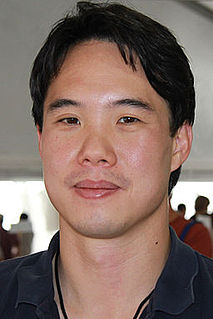A Quote by Rupert Murdoch
People are reading news for free on the web, that's got to change.
Related Quotes
This is what I say: I've got good news and bad news. The good news is, you don't have to worry, you can't change the past. The bad news is, you don't have to worry, no matter how hard you try, you can't change the past. The universe just doesn't put up with that. We aren't important enough. No one is. Even in our own lives. We're not strong enough, willful enough, skilled enough in chronodiegetic manipulation to be able to just accidentally change the entire course of anything, even ourselves.
You're always going to have more traffic if you're a free website. But we've always admitted that the New York Times was behind other news organizations in making our stories available to people on the web. BuzzFeed and the Huffington Post are much better than we are at that, and I envy them for this. But I think the trick for the New York Times is to stick to what we are. That doesn't mean: Don't change. But I don't want to be BuzzFeed. If we tried to be what they are, we would lose.
I'm confused about who the news belongs to. I always have it in my head that if your name's in the news, then the news should be paying you. Because it's your news and they're taking it and selling it as their product. ...If people didn't give the news their news, and if everybody kept their news to themselves, the news wouldn't have any news.
I think our primary function is to create the strongest, deepest, most interesting news report there is in the world.And whether it's on the front page of the newspaper or leading the home page doesn't really matter. We reach a huge audience on the Web. And really, you know, the journalists, whether they are reporters or editors or Web producers or multimedia specialists, we're all creating, you know, the journalism that is the bedrock of our news report. And that's true for the newspaper, the Web, our apps, and you name it.
I think a comic looks better in the magazine. The colors are designed to be on paper, not illuminated on screen. I don't like the aspect of people reading it for free. When people get things for free, they tend to not take them as seriously. But I don't know. I'm sure 10 times more people are reading it online than in the actual paper.
The west has fiscalised its basic power relationships through a web of contracts, loans, shareholdings, bank holdings and so on. In such an environment it is easy for speech to be "free" because a change in political will rarely leads to any change in these basic instruments. Western speech, as something that rarely has any effect on power, is, like badgers and birds, free.




































